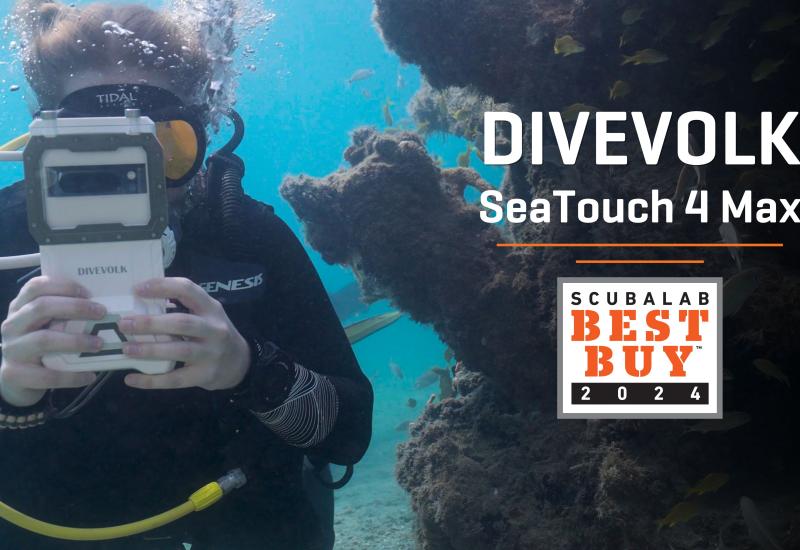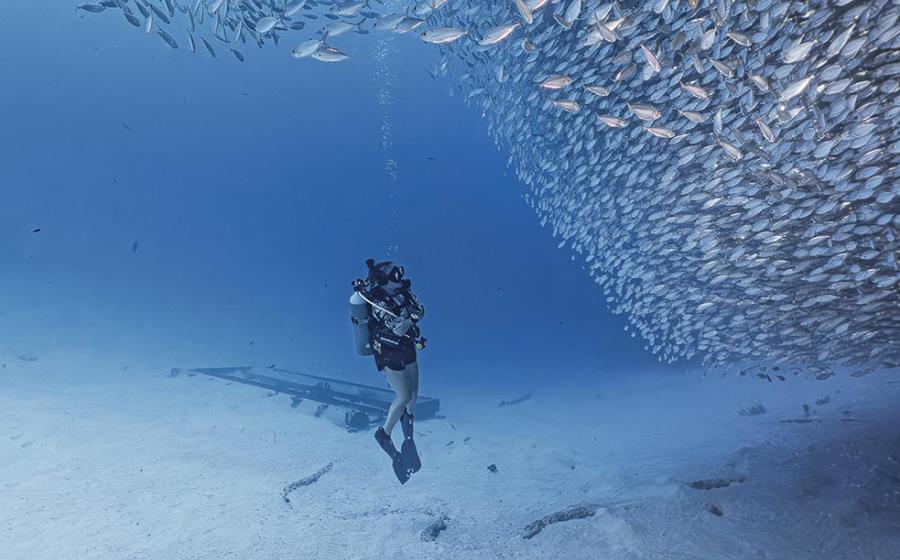9 Accessories Every Scuba Diver Should Have
Diving is a unique sport in that it requires life support equipment. That's why our ScubaLab team spends much of its time performing hard-core evaluations on regulators, BCs, computers and fins. You depend on your essential dive gear to keep you safe, and our job is to help you find the best option at the best cost.
See ScubaLab's Latest Accessory Review
But the dive experience encompasses more than mere survival. Diving is a sport — it's supposed to be fun. So we went in search of the must-have dive accessories — toys, tools and more — that help you enjoy the overall dive experience. The following are the top accessories we think every diver should have.
1. A Good Full-Sized Gear Bag

Courtesy Zach StovallCressig Gorgona Dive Bag
Every diver needs a bag to organize, transport and protect their gear. We recommend you do it right with dive-specific luggage that's not only custom-built to protect your gear but that can stand up to sun, saltwater and sumo-like baggage handlers. The trend in full-sized dive luggage is toward slightly smaller and decidedly lighter bags as airlines have gotten strict about luggage restrictions in recent years. Here are three new models that impressed us. See ScubaLab's latest dive bag review.
2. A Good Dry Bag

Courtesy Jon WhittleIST Sports DB20L Dry Bag
On any dive boat smaller than your typical aircraft carrier, so-called "dry areas" are few and far between. How do you make certain your wallet, cell phone, clothes and towel stay bone-dry while you're out having wet fun? Your best bet is an airtight dry bag that will seal out water and moisture even if dropped overboard.
3. Some Good Dive Lights

Courtesy Jon WhittleUnderwater Kinetics C4 eLED L2
It's another world on the reef at night, and your passport to diving after dark is a trusty dive light. You need a good primary for night diving, of course, but a good pocket light is useful both as a backup light and for peering into crevices by day. Check out ScubaLab's latest test on dive lights for the best models on the market.
4. A Compass

Courtesy SuuntoSuunto SK-8 Dive Compass
If you really want to impress the other divers on the boat, don't stand around telling harrowing stories about getting lost — just come back to the boat without having to surface to find it. Some computers — check out the ScubaLab computer test here — include a digital compass, but you may need to use a good, old-fashioned compass if you want to sharpen your navigation skills.
5. Surface Signaling Devices

Courtesy Dive RiteDive Rite Surface Marker Tube
Take it from us: Surfacing down-current a long, long way from the dive boat is one lonely feeling. You can't always prevent it, but you can prepare for it with a good set of surface signaling gear. We recommend a tall, inflatable signal tube, an ear-splitting whistle and a signaling mirror as standard equipment on every dive.
6. GPS Rescue Device

Courtesy Nautilus LifeLineNautilus LifeLine Marine Rescue GPS
Getting lost at sea is a nightmare for almost any diver, but you can put your mind at ease with a GPS rescue signaling device such as the Nautilus Marine Rescue GPS. Once you activate the Nautilus, your GPS position is sent to surrounding boats — it also floats and can be taken to 425 feet.
7. A Good Parts & Tool Kit
Minor gear failures like a blown O-ring or leaky fitting won't keep you from diving if you have the right backup parts and tools to engage in some basic field repair.
8. A Trusty Dive Knife

Courtesy Jon WhittleSpyderco Assist Salt and Snap-It Salt Lightweight
No piece of dive gear has improved more over the decades than the dive knife. The latest designs make use of better materials that resist corrosion and hold a sharp edge longer than ever before. See ScubaLab's latest dive knife review.
9. A Tank Banger

Courtesy XS ScubaXS Scuba Tank Banger
Divers know the sound all too well — clank! clank! Tank bangers are perfect for divemasters pointing out critters in the blue or buddies who want to quickly capture the attention of another diver.










